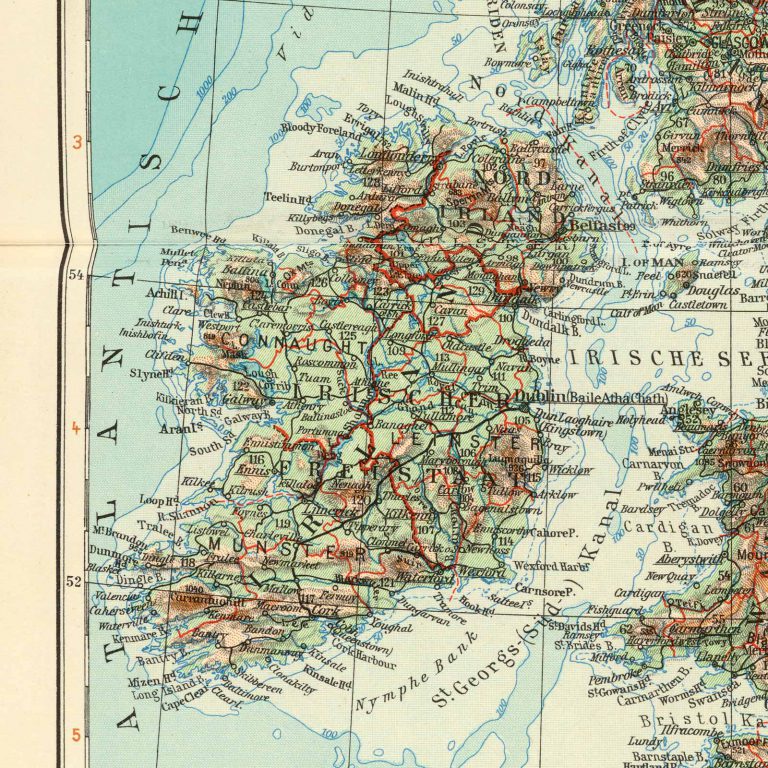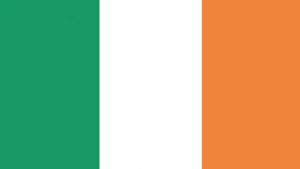
Ireland
Policy on Immigration and Refugees
Ireland is a classic example of an emigration country. Famine, poverty and lack of prospects for work prompt millions to leave the country, especially in the 19th century. Such migration continues into the early 20th century, though to a lesser extent. The region is marked by political unrest and upheaval: In 1922, the Irish Free State is founded as a result of the Irish War of Independence.
However, as a “dominion,” Ireland remains connected with Great Britain. The Irish government, led in the 1930s by Éamon de Valera, founder of the conservative Fianna Fáil party, aspires to self-sufficiency. In 1937 de Valera pushes through a new constitution that declares Ireland a sovereign, independent state. However, the final separation from Great Britain does not take place until 1949. Ireland’s economy is agriculturally based. Industry is still in its infancy.
Ireland’s immigration policy in the 1930s, based on the Aliens Act of 1935, is rigid. Entry is only possible with a visa and a landing permit from an immigration officer. Those expecting to work must obtain a work permit before their arrival. But such a permit is only granted if it does not disadvantage any Irish citizen. All others must prove that they have sufficient financial means. An exception is made for foreigners arriving from the United Kingdom: They do not need any entry permits and are not checked – a loophole that some refugees use to enter Ireland as “visitors.”
The Ministry of Justice is in charge of implementing the Aliens Act. Unlike de Valera, whose attitude in this regard is liberal, the ministry follows a strict course, especially when it comes to Jewish refugees. Looking back on the situation after the war, a high-ranking representative of the Ministry of Justice says the Jews were considered unable to assimilate and therefore “potential disruptive factors for the community.” Concerns about a potential increase in antisemitism also serve to justify the restrictive policy. Fewer than 300 Jews find refuge in Ireland.
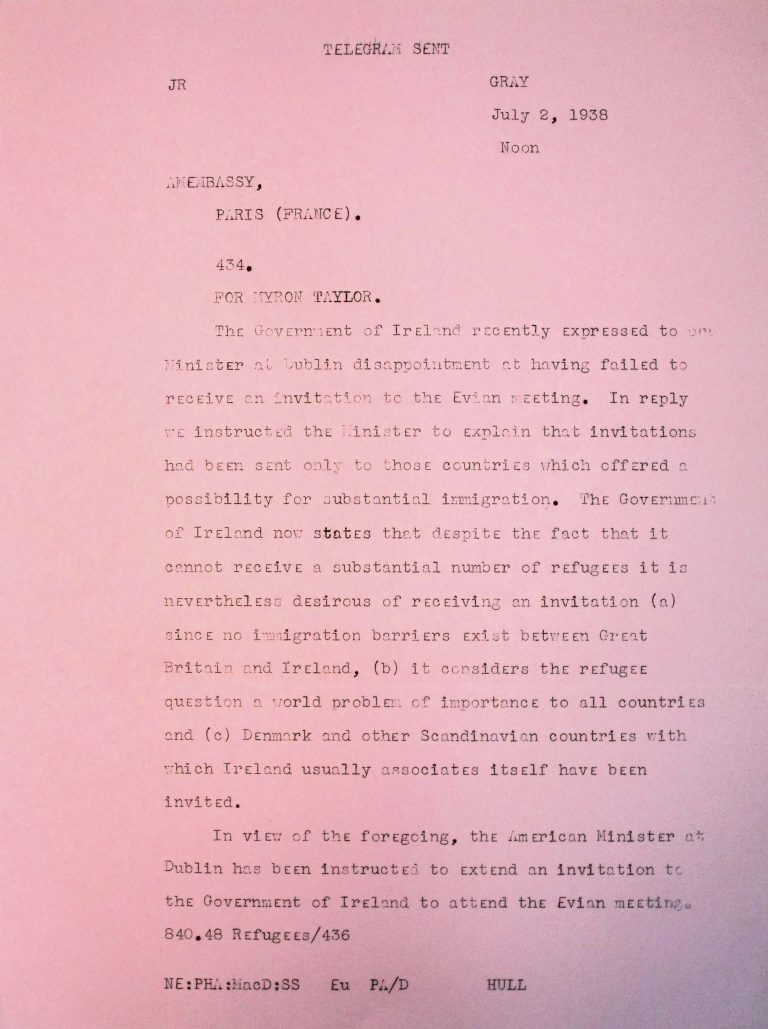
US Department of State (Cordell Hull) to Myron C. Taylor, US Embassy in Paris, July 2, 1938
Though it accepts few refugees, Ireland insists on an invitation to the Évian Conference. Among the official reasons given for participation is the lack of immigration barriers between Ireland and Great Britain. But foreign-policy calculation also likely plays an important role, given Ireland’s aspirations toward political independence.
National Archives, College Park, MD
US Department of State (Cordell Hull) to Myron C. Taylor, US Embassy in Paris, July 2, 1938
Though it accepts few refugees, Ireland insists on an invitation to the Évian Conference. Among the official reasons given for participation is the lack of immigration barriers between Ireland and Great Britain. But foreign-policy calculation also likely plays an important role, given Ireland’s aspirations toward political independence.
National Archives, College Park, MD
Delegation
Francis (“Frank”) Thomas Cremins
* 20. January 1885 Carrick-on-Suir † 1 August 1975 Dalkey
Born to a teacher and the head of a workhouse, Cremins begins his career in 1900 as an intern with the British postal administration and gradually becomes a mid-ranking civil servant. In 1922 he switches to the public-relations department at the Foreign Office. After four years in the Ministry of Agriculture from 1925 to 1929, he returns to the Foreign Office to assume leadership of its League of Nations department. In this function he plays a major role in the Irish Free State’s election to a three-year term as a non-permanent member of the League of Nations Council in 1930.
In May 1934 Cremins becomes the Free State’s permanent representative to the League of Nations in Geneva; from there, he informs the Irish government about the decline of the League of Nations and the rise of fascism and totalitarianism. Cremins remain with the failing League of Nations until May 1940, when he is appointed the Irish chargé d’affaires in the new embassy in Switzerland. He remains in this post despite ill health through July 1949, when he retires.
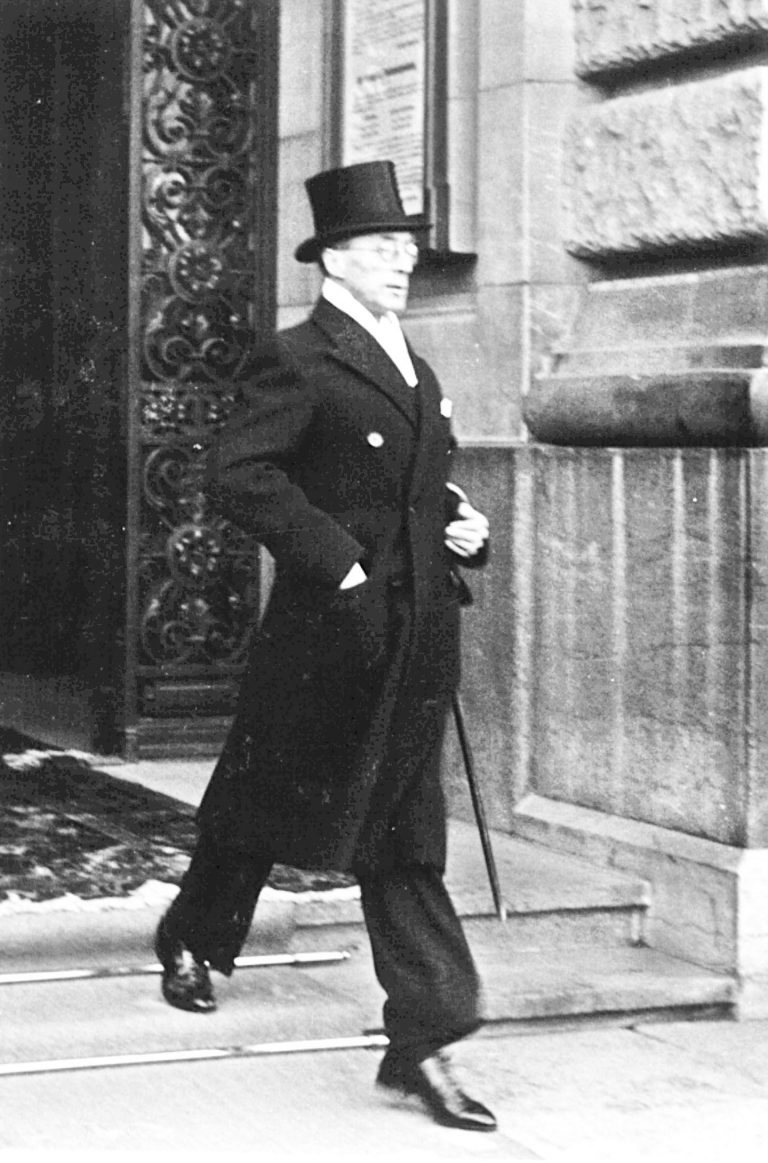
Francis Thomas Cremins, undated
National Archives of Ireland, Dublin
Francis Thomas Cremins, undated
National Archives of Ireland, Dublin
John Edwin Duff
* 1895 Dublin † 20 August 1949 Dublin
After studying mathematics and physics in Dublin, John Duff joins the British Audit Office in London as an auditor in 1914. In 1919 he is transferred to the Local Government Board, the supervising authority for the local administration, at Dublin’s Custom House. When the Irish Republican Army burns this building to the ground in 1921 during the Irish War of Independence, he is assigned to the finance department of the Chief Secretary’s Office, the de facto government in British Ireland.
In January 1922, shortly after the signing of the Treaty on the Irish Free State, he moves to the newly created Office of Home Affairs; he is promoted to deputy head of the department in 1923. That same year, Duff is admitted to the bar and appointed deputy minister of justice in 1938. In this role he is responsible for Ireland’s policy on foreigners. In 1949 Duff is named minister of justice; he dies a few months after taking office.
Conference Contributions
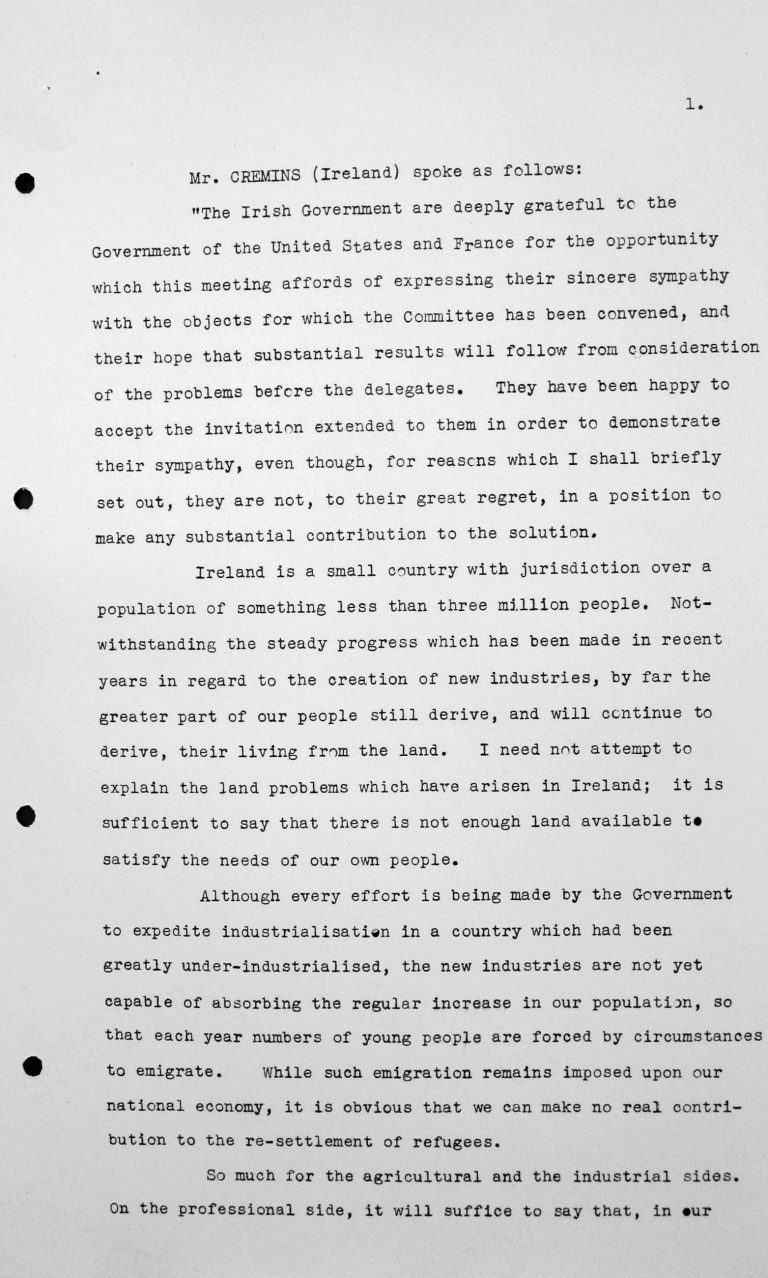
Statement by Francis Thomas Cremins (Ireland) in the public session on July 11, 1938, 11am, p. 1/2
Franklin D. Roosevelt Library, Hyde Park, NY
Statement by Francis Thomas Cremins (Ireland) in the public session on July 11, 1938, 11am, p. 1/2
Franklin D. Roosevelt Library, Hyde Park, NY
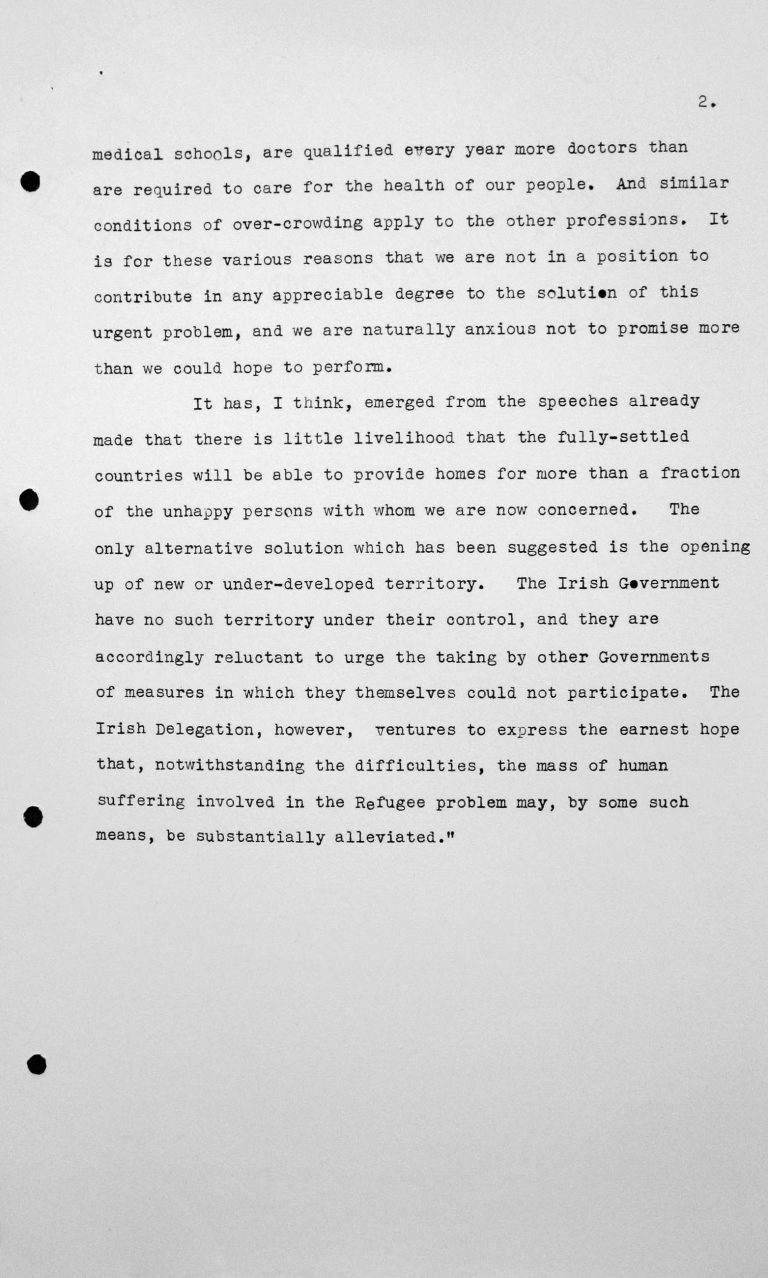
Statement by Francis Thomas Cremins (Ireland) in the public session on July 11, 1938, 11am, p. 2/2
Franklin D. Roosevelt Library, Hyde Park, NY
Statement by Francis Thomas Cremins (Ireland) in the public session on July 11, 1938, 11am, p. 2/2
Franklin D. Roosevelt Library, Hyde Park, NY
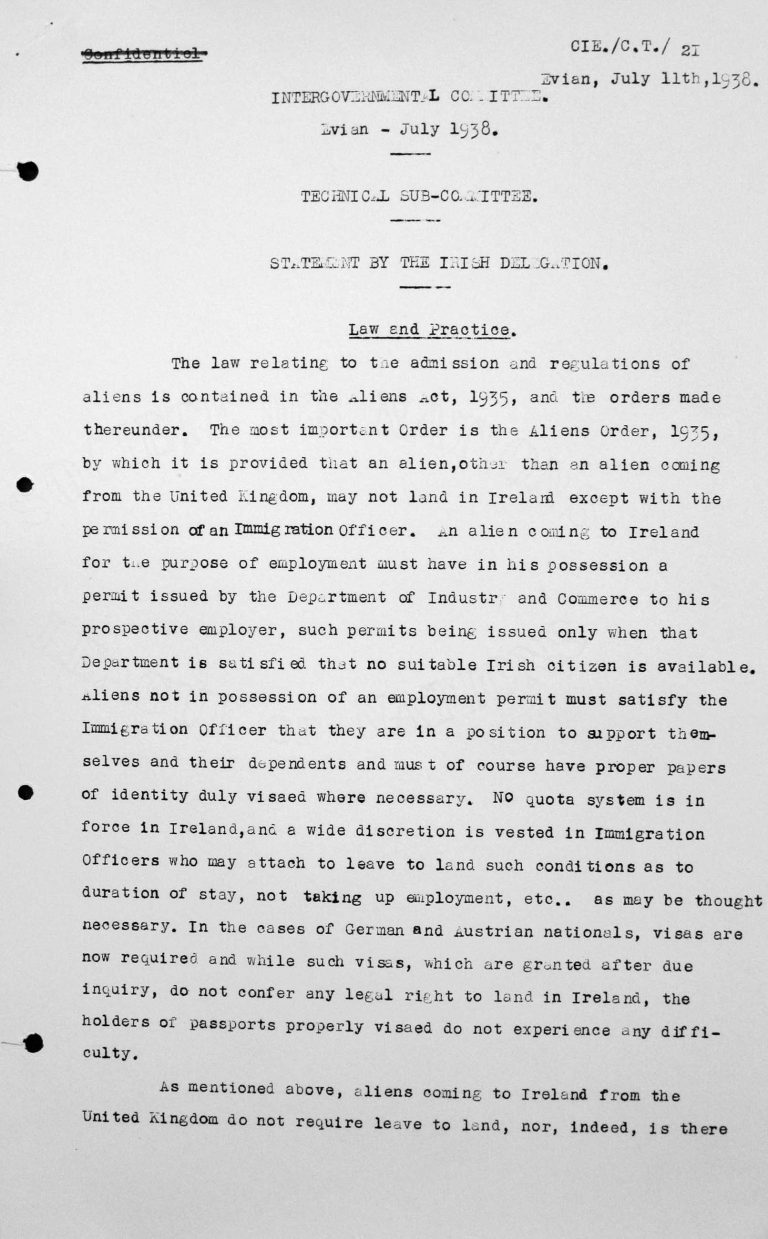
Statement by the Irish delgation for the Technical Sub-Committee, Juli 11, 1938, p. 1/3
Franklin D. Roosevelt Library, Hyde Park, NY
Statement by the Irish delgation for the Technical Sub-Committee, Juli 11, 1938, p. 1/3
Franklin D. Roosevelt Library, Hyde Park, NY
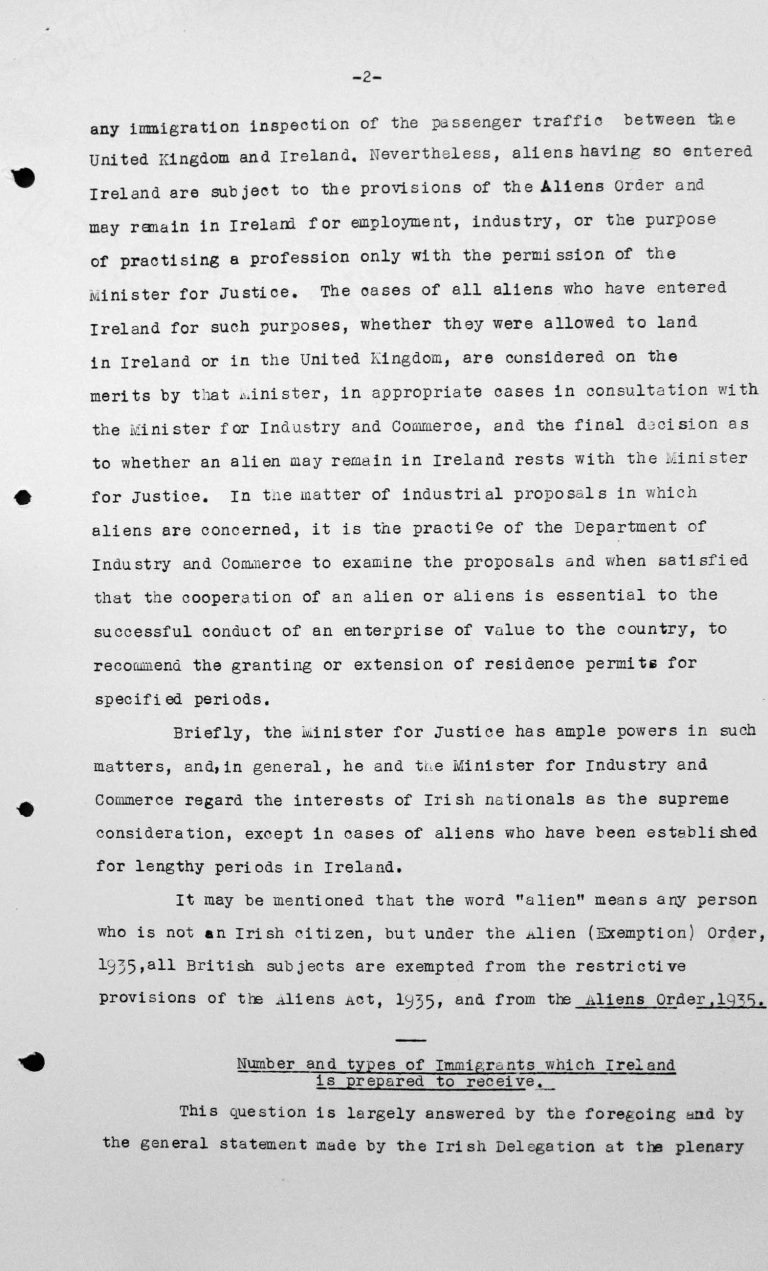
Statement by the Irish delgation for the Technical Sub-Committee, Juli 11, 1938, p. 2/3
Franklin D. Roosevelt Library, Hyde Park, NY
Statement by the Irish delgation for the Technical Sub-Committee, Juli 11, 1938, p. 2/3
Franklin D. Roosevelt Library, Hyde Park, NY
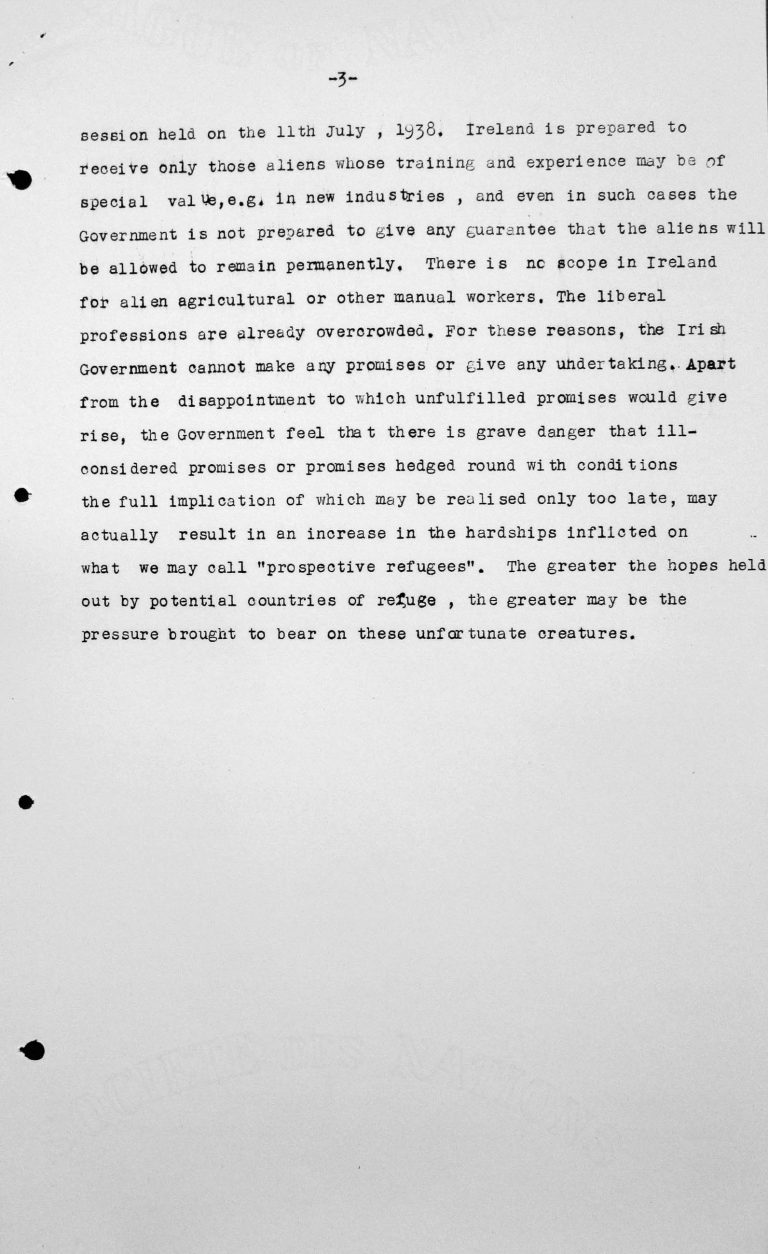
Statement by the Irish delgation for the Technical Sub-Committee, Juli 11, 1938, p. 3/3
Franklin D. Roosevelt Library, Hyde Park, NY
Statement by the Irish delgation for the Technical Sub-Committee, Juli 11, 1938, p. 3/3
Franklin D. Roosevelt Library, Hyde Park, NY
